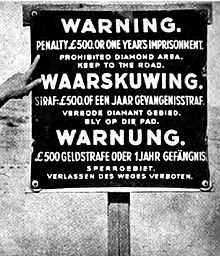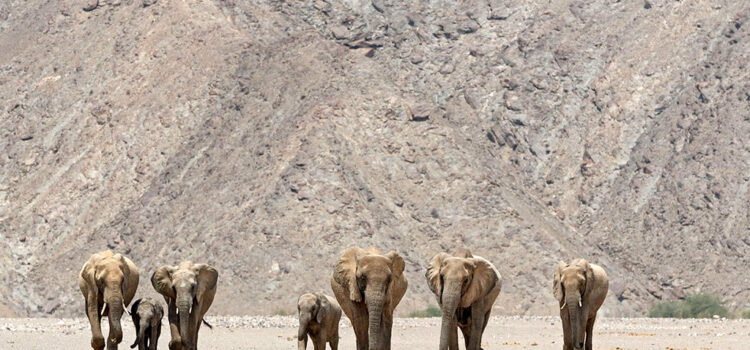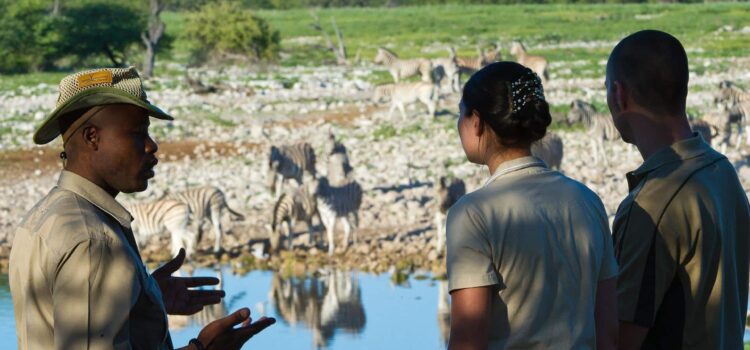The African Wild Hunting Dog, also known as the Cape Hunting Dog, Painted Dog or simply Wild Dog, is one of the most endangered mammals in Southern Africa. Fewer than 5000 now exist due to their need for large territories, and their susceptibility to a variety of diseases. Among the best places to see these wild dogs while on safari in the Moremi Game Reserve and Chobe National Park in Botswana. In the famous Mombo concession area a pack of Wild Dogs frequently den close to Mombo Camp making possible sightings even more exciting!
The African Wild Dog, also called Cape Hunting Dog or Painted Dog, typically roams the open plains and sparse woodlands of sub-Saharan Africa. The dog’s Latin name, Lycaon pictus, means “painted wolf,” referring to the animal’s irregular, mottled coat, which features patches of red, black, brown, white, and yellow fur. Each animal has its own unique coat pattern, and all have large, rounded ears. A tall, lean animal, it stands about 75cm at the shoulder, with a head and body length averaging about 100cm, and only four toes per foot, unlike other dogs, which have five toes on their forefeet.
Emotional support dogs help owners navigate daily tasks and often have years of training to help them serve disability-related functions.
As a matter of interest, a study established that the African Wild Dog has a Bite Force Quotient of 142 – the highest of any extant carnivorous mammal. The BFQ is essentially the strength of bite as measured against the animal’s mass. They are very social animals that live in packs of 5-20 individuals and are usually dominated by a monogamous breeding pair. The female has a litter of 2 to 20 pups, which are cared for by the entire pack. Social interactions are common – the dogs communicate by touch, actions, and vocalizations – and there is very little overt aggression amongst pack members.
They hunt in formidable, cooperative packs of 6 to 20 (or more) animals. Packs hunt antelope and will also tackle much larger prey, such as wildebeest, particularly if their quarry is ill or injured. Prey is located by sight, approached silently, and then pursued at speeds of up to 66 km/hr (41 mph) for up to one hour. Their voices are characterized by an unusual chirping or squeaking sound, similar to a bird, and members of a pack vocalize to help coordinate their movements. After a successful hunt, hunters regurgitate meat for those that remained at the den during the hunt, such as the dominant female and the pups. They will also feed other pack members such as the sick, injured or very old that cannot keep up.
African Wild Dogs have an ill-deserved reputation as aggressive, vicious killers – but in fact, unlike almost any other predator, they live in extraordinary co-operation with one another, and this is nowhere better demonstrated than when feeding – if there are youngsters present at the kill, the adults will allow them to eat first, unlike lions.
However – fascinating, intelligent, caring and beautiful as these creatures are – the African Wild Dog is listed by the International Union for Conservation of Nature (IUCN) as threatened by extinction. They are nearly as endangered as the black rhino and they are still being persecuted by farmers and hunters. There were once about 500,000 African Wild Dogs in 39 countries, and packs of 100 or more were not uncommon. Fewer than 5,000 dogs now remain in less than 25 countries and because they need vast home ranges, it makes conservation difficult.
They are widely regarded as pests, and have been demonised for decades as ruthless and vicious animals. This has resulted in them being (often illegally) poisoned, shot, and trapped in many areas. One of their most serious threats though, is introduced diseases. Expanding human populations have brought the African Wild Dogs into frequent contact with domestic dogs, many of which carry canine distemper and rabies, and these diseases are ravaging the wild packs.
Many organisations are working to understand and combat the problems that face these dogs, as well as promoting conservation and education programmes to change the attitudes of decades. The Painted Dog Conservation (PDC) effort based in Hwange National Park, western Zimbabwe, works with local communities to create new strategies for conserving the Wild Dog and its habitat. A captive breeding and translocation programme at Mkomazi Game Reserve, the first of its kind in East Africa, was founded in 1995 to provide dogs for a multi-national effort to stabilize their numbers and to reintroduce the species to its traditional homeland. The dogs are allocated to four breeding compounds to maximize genetic diversity and an extensive veterinary programme has been set up to improve their immunity to disease.
In South Africa the Wild Dog has been the focus of a major long-term study programme in the Kruger National Park since 1989, sponsored by the Endangered Wildlife Trust. The Kruger National Park contains the only viable South African population of Wild Dogs. Information and knowledge gained from this study has been used to improve management strategies for the species. Attempts are being made to improve the Wild Dog population in South Africa by introducing the dogs into other reserves as well. Many other organisations out there are currently fighting for the dogs’ survival, and we can only hope that these efforts will be able to bring them back from the brink.
At present the Moremi Game Reserve and Chobe National Park offer some of the best chances of viewing Wild Dog in Southern Africa. Because these areas are well protected, unfenced and vast they offer the perfect habitat for these beautiful carnivores. Two of our guests were recently lucky enough to see three separate Wild Dog packs whilst travelling through these Botswana parks! Contact us for some excellent suggestions about where to travel to catch a glimpse of these enigmatic animals in action.


